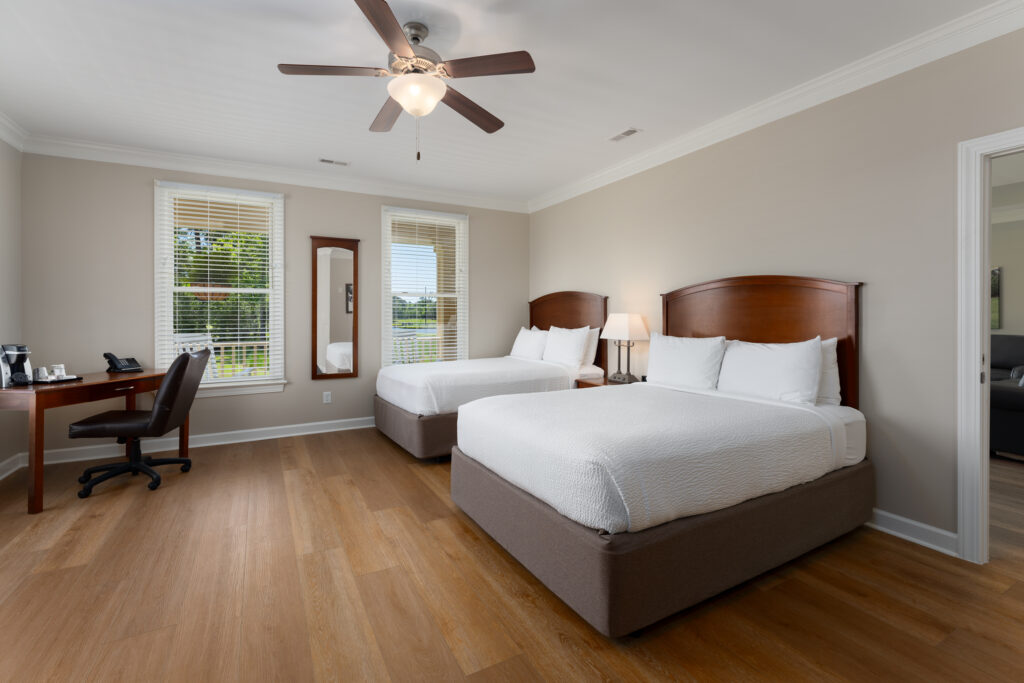When booking a hotel room, you might wonder how strict hotels are about the number of people staying in a room. Whether you’re planning a family trip or just trying to save on costs, you may ask yourself, “Do hotels care how many guests stay per room?” The answer is more complex than a simple yes or no, as it depends on various factors such as the hotel’s policies, room size, and safety regulations. This article will cover everything you need to know about how hotels manage guest occupancy, what the rules are, and what you should consider before packing extra guests into your room.
Do Hotels Check How Many Guests Are in a Room?

Yes, most hotels do check how many guests are staying in a room, especially during the booking process or at check-in. When you make a reservation, you’re typically asked to specify how many adults and children will be staying. This number is important for several reasons:
- Safety and Regulations: Hotels have occupancy limits based on fire codes and safety regulations. These rules are in place to ensure that, in case of an emergency, everyone can safely evacuate the building. Each room is equipped with a specific number of fire exits, sprinklers, and other safety measures that are designed for a certain number of occupants. Overloading a room could violate local laws and put guests at risk.
- Comfort and Amenities: The room size and amenities are often designed to accommodate a specific number of guests. For example, a room for two people will likely have one bed, towels for two, and other amenities set up for two guests. If more people are staying in the room than it was designed for, the space may feel cramped, and the hotel might not have enough resources, such as towels, toiletries, or bedding, to accommodate everyone.
- Room Rates: Hotels charge rates based on the number of occupants. Some hotels offer a base rate for two guests and charge an additional fee for extra people. This is why hotels are often interested in knowing exactly how many people will be staying in a room.
While hotels may not always physically check how many people are in a room after check-in, they rely on the information provided during booking to ensure that they are complying with safety standards and providing an enjoyable experience for all guests.
How Strict Are Hotels on the Number of Guests?
Hotels can be quite strict when it comes to the number of guests allowed in a room, but it varies depending on the hotel. Larger hotels and resorts tend to be more vigilant because they have to comply with strict safety and capacity regulations. Smaller hotels or motels might be more lenient, but it’s always a good idea to follow the hotel’s guidelines.
Here’s what could happen if you try to sneak extra guests into your room:
- Extra Fees: If the hotel finds out that you have more guests than allowed, they may charge you additional fees. These fees can be applied per extra person, and depending on the hotel’s policy, they may be significant.
- Eviction: In some cases, especially if the occupancy limit is severely exceeded, the hotel may ask you to leave. While this is more extreme, hotels have the right to enforce their policies to ensure the safety and comfort of all guests.
- Denied Services: If the hotel staff suspects that there are more people in the room than allowed, they may limit services such as housekeeping or refuse to provide extra towels or bedding.
While some hotels may be stricter than others, it’s best to be upfront about the number of guests to avoid any issues during your stay.
Do Hotels Mind if 5 People Stay in a 2-Person Room?
Most hotels would mind if five people tried to stay in a room that’s meant for two. As mentioned earlier, hotels have occupancy limits based on room size and safety codes. A room meant for two people likely won’t have enough space, beds, or amenities to comfortably accommodate five guests. Plus, exceeding the occupancy limit can be a fire hazard and may violate local safety regulations.

Here are a few reasons why hotels don’t allow five people in a two-person room:
- Comfort: The room won’t have enough beds or space to comfortably fit five people. Cramming extra guests into a small space can make the stay uncomfortable and unenjoyable for everyone involved.
- Hotel Policy: Many hotels have clear policies regarding the maximum number of occupants per room. These policies are in place to ensure safety, comfort, and a pleasant stay for all guests. If you exceed the limit, you risk violating the hotel’s rules.
- Extra Charges: Even if the hotel allows additional guests, they may charge extra fees for each person beyond the room’s occupancy limit. These fees are often intended to cover the extra costs of providing additional amenities and ensuring that the room is properly maintained.
If you’re traveling with a larger group, it’s better to book a room that can comfortably fit everyone, such as a family suite, or book multiple rooms to accommodate your party.
Can You Have 3 People in a 2-Person Hotel Room?
Whether or not you can have three people in a two-person hotel room depends on the hotel’s specific policies. Some hotels may allow an additional guest if there is enough space and if safety regulations allow it. However, the hotel may charge an extra fee for the third guest.
If you’re planning to have three people in a two-person room, here’s what you should consider:
- Availability of Extra Beds: Some hotels offer rooms with a pull-out sofa or the option to request a rollaway bed. If the room can accommodate an extra bed, the hotel may allow three guests to stay.
- Fees for Extra Guests: Hotels may charge an additional fee for the third guest, even if they provide an extra bed. Be sure to ask the hotel about their policy on extra guests to avoid any surprises when you check out.
- Room Size and Comfort: While some rooms may technically allow for three guests, you’ll want to consider the comfort of the space. A room designed for two people might feel cramped with three, especially if there’s only one bed.
Conclusion
Hotels do care about how many guests stay in each room for reasons related to safety, comfort, and hotel policy. While some hotels may be more flexible than others, most follow strict guidelines to ensure they are not exceeding room occupancy limits, as this could pose a fire hazard or create an uncomfortable environment for guests.
Trying to sneak extra guests into a room not only risks additional fees but can also lead to eviction or denied services. If you’re traveling with a larger group, it’s best to book a room that can comfortably accommodate everyone or book multiple rooms to ensure that your stay is enjoyable and stress-free. Always check the hotel’s policy before making a reservation, and if you’re unsure, contact the hotel directly to clarify their rules on guest occupancy.











